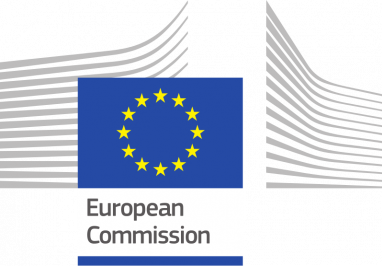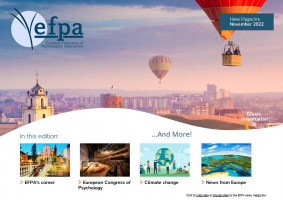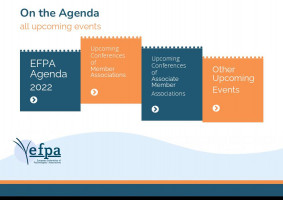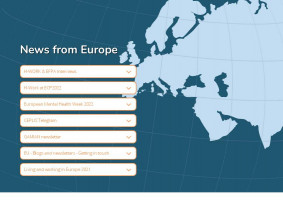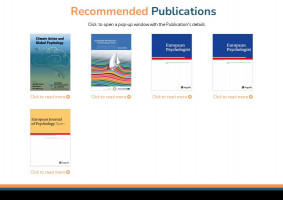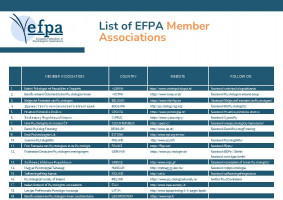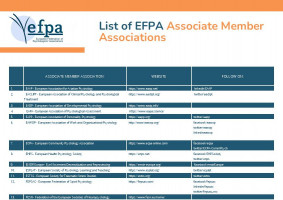-
Italy
Environmental Psychology and Climate Change in Italy
In Italy, most environmental psychology research (though not all of it) is networked via CIRPA (the Interuniversity Research Centre on Environmental Psychology), which carries out funded research projects on both adaptation issues and mitigation issues related to Climate Changes (CC). Examples of adaptation to CC are given by research focused on understanding the role of social-psychological factors (e.g., place attachment) in favouring or hindering human perception and coping towards climate change phenomena (e.g., floods). Examples of CC mitigation are offered by research focused on understanding the role of social-psychological factors (e.g., values, social norms, etc.) in increasing people sustainable and pro-environmental behaviours (e.g., sustainable consumption, biodiversity protection, etc.). A recent stream of research focuses on drivers and barriers towards the acceptability and acceptance of renewable and sustainable energy technology innovations (which may be useful for either mitigation or adaptation purposes): here three order of variables are measured and tested via specific tools, namely, classical social-psychological features of the adopter; features of the energy technology to be adopted; and features of the context within which the adoption process is framed (in terms of both economics and market features, and politics and administrative features).
Read more - text fold out Such topics are recurrently targeted by specific symposia on Environmental Psychology, which are typically organised within the annual national conference of the Italian Association of Psychology (AIP congress, usually held in the second half of September each year). Similarly, such an activity is pursued at the international level too, within some of the major scientific events organised by the relevant scientific associations within the Environmental Psychology community (such as, IAPS, IAAP, and the like).
On the professional side, a working group on “Environment, Territory, and Tourism” has been created by the Italian association of professional Psychologists – namely the Gruppo di Lavoro “Ambiente, Territorio e Turismo” at the Consiglio Nazionale dell’Ordine degli Psicologi (CNOP) – where three academicians have been nominated in order to work with three psychologists from the professional community, with the aim of implementing environmental psychology in the professional domain. The group produces documents to support environmental psychology dissemination and professional practice (for example, a document presents a definition of such a professional profile; other documents create agreements with relevant stakeholders’ associations; another document is a White Paper on Nature Based Therapies upon request of specific stakeholders).
Moreover, Community Psychology focused its 9th world conference hold in Naples on the 21-24 September 2022 on “Community Psychology: Community Regeneration. Bonds and Bridges among People and Environments” dealing with climate change issues. This huge event chaired by Caterina Arcidiacono and opened by Christoph Steinebach, EFPA President, brought to Italy psychologists of 45 countries from the 6 continents.The workshop “What can community psychologists do to promote just transformations in the face of climate change?” held by ECPA highlighted what climate justice and sustainable transformations mean and how to intervene in the processes of shaping our collective futures. During the conference Pamela Clinton, the Senior Director for the Office of International Affairs at the American Psychological Association (APA) highlighted with her keynote the organizational efforts to engage psychologists in addressing the climate crisis and the global contributions of psychology to face the current environmental crisis. Last but not least the interactive improvisational theatre “Quality of life: environment, sea, earth and wellbeing” was performed. Improv is an art in which an ensemble of actors creates improptu stories and there we infer that Improv mindset helps expanding the sense of a safe environment as well as the buildup of a welcoming life environmental context.
Back to top

-
Malta
Forum on the Environment in Malta and the Impact on Mental Health and Well-being
Being committed to promoting the contribution of the discipline of psychology in matters related to the environment and climate change, The Malta Chamber of Psychologists organised an event titled: “A Forum on the Environment in Malta and the Impact on Mental Health and Well-being”. This took place at the Majjistral Nature and History Park, Malta on the 3rd June, 2022. The aim of the forum was to understand and promote the importance of the environment to the wellbeing of the people of Malta and the role that psychology can play in this. The forum also aimed to provide a springboard for a discussion on achieving a much-needed environmental vision for Malta.
The forum speakers consisted of a number of professionals and civil society actors and was chaired by the Dean of the Faculty for Social Wellbeing at the University of Malta, Prof Andrew Azzopardi.
Read more - text fold out
Prof. Maria Attard, Director at the Institute for Climate Change and Sustainable Development, and Head of Department of Geography at the University of Malta discussed “The role of the environment in public health and well-being” focusing on the three main elements of transport, health, and environment and their role in preventive health.
Mr Andre’ Callus from Moviment Graffitti, a local NGO, discussed how space is shaped by both global and local forces that produce a landscape we come to take for granted. His presentation on “In whose interest? Constructing space in a neoliberal age” engaged with the construction ‘boom’ in Malta, critically engaging with Malta’s economic model and power relations.
Dr Immanuel Mifsud, Senior Lecturer at the University of Malta gave a talk titled “Mourning and Melancholia After Cutting a Flower to Build a Room” drawing his observations on excerpts from local poetry. His presentation highlighted how the destruction of the natural environment may translate into both personal and collective loss.
Prof Simone Borg, Maltese Ambassador for Climate Action and Chair of the Climate Action Board discussed "Climate, COVID, and Well Being" proposing a paradigm shift where social justice and environmental well-being are prioritised.
Dr Gottfried Catania, Head of the Department of Psychology at the University of Malta spoke on the topic of “Nature, the environment, and wellbeing at work”. In his presentation he stressed the contribution of a positive physical workspace for employees’ wellbeing and how this contributes to organisational outcomes. He stressed the dearth of spaces in which one can appreciate nature in the local context.
Prof. Joe Friggieri, Professor of Philosophy at the University of Malta presented a paper titled "Putting Humpty Dumpty together again: the environment as cure" where he gave an exposition of his thoughts on what we can do to save the environment from further degradation if it is considered as a therapeutic tool rather than a financially exploitable resource.
The forum was received well, and feedback clearly highlighted that the environment needs to feature much more prominently within the world of psychology especially given how important climate change has become at global level.
Back to top
The Swedish Psychological Association realizes a climate handbook
There are many climate-committed psychologists in Sweden as well as within the Swedish Psychological Association. In 2020 the General Assembly of the Swedish Psychological Association decided on several climate-related goals. Since then, the board of the association has adopted UN’s Sustainable Development Goals as central to our profession and the politics of the association. We also try to spread knowledge in different sectors of society about how psychologists and the sciences of psychology can contribute to a sustainable transition for individuals, organizations and societies.One of the national association’s professional bodies, Psychologists for Sustainable Development (Psykologer för hållbar utveckling/PHU), was founded in 2019 and operates in the intersection between psychology and sustainability. The idea and realization of a climate handbook anthology came from several active psychologists within PHU, with the aim to compile research and knowledge in that field.
Our hope is for the handbook to be a tool for learning and reflection, and it provides an opportunity to expand knowledge and inspiration for psychologists, decision- and policy makers, and other interested parties. The various texts are meant to complement each other and include current psychological research. The authors have written their respective chapters based on their specific areas of knowledge, and the website will expand with more texts based on research and experiences over time.
Read more about the Climate handbook here
Back to top

The course, created by psychologists for psychologists, teachers, and medical workers is focused on sharing awareness of the problem and empowering communities with concrete tools.
In 2020, the NPA had an idea to develop an online training course for fellow specilists about climate change. Our group of psychologists submitted this project proposal to APA’s PsychSolutions Competition, a contest held in 2020, that highlighted innovative science-based initiatives aiming to address global mental health challenges. NPA was chosen as the “People’s Choice Award Winner” and received a small grant to support the production and publication of the Climate Change and Mental Health initiative in Ukraine.For 9 months a team of experts together with local ecological activists had been working on the research and video production of the training course “Climate change, mental health, and environmentally conscious behavior” . As a result, they created 9 short lectures that cover different topics related to the influence of climate factors on psychological well-being.
The course provides general information about the problem and examples relevant to people from Eastern Europe, shares evidence-based data about climate change influence on the mental health (more than 70 different researches), shows different intervention approaches including those that incorporate nature (such us walk and talk therapy or plant therapy), and tells about behavioral changes, barriers for pro-environmental behavior, communication strategies, effective narratives and metaphors. The key messages of the course are focused on how we and our inner circle are affected by climate change, how psychologists can prevent the problems associated with it, and what are the correct messages and strategies for changing human behavior.
The training course consists of 9 short but insightful lectures. Total duration of the course is 3 hours. The format allows it to be meaningful, structured, dynamic, and captivating to the viewer. It is important that everything students learn in the course is based on scientific data, official statistics, protocols, and studies. The team of creators set themselves the goal to use arguments that Ukrainians will understand, because Ukrainian society is full of doubts and suspicions about the topic.
Each lecture has a short test for self-assessment, at the end of the course there is also a summary test upon the completion of which the student receives a certificate. At the end of the course all participants are proposed to download helpful materials for further work. About 500 psychologists have already completed the course in Ukraine. The course lectures are also available in English for colleagues from Eastern Europe, and other countries.
You can find the English lectures here -
The Climate Change and Mental Health Working Group team has completed the development of informational animated movies on the impact of climate change and environmental issues on mental health. «When we started our work in 2019 - says the moderator of the group Valeriia Palii, we realized that the vast majority of our colleagues very poorly understand the fact that the climate and its changes have an impact on our mental health. Therefore, we decided to make a few short informational films that we could explain this connection to our colleagues on the basis of scientific facts».
Read more - text fold out
The working group chose several topics, like air pollution, landscape changes, natural disasters, temperature rise, and the influence of human activities on nature.
"In order to make the video and the problem interesting for our colleagues, we have added specific examples of climate change in Ukraine to each video. In our information field there is a lot of information about hurricanes, and melting glaciers, but this is not about our experience, these facts are far from many and unconvincing. It was also important for us not to intimidate, but to give hope, so at the end of each video there is a call to learn more about the problem and a link to a portal with useful resources," says group member Ivanna Davydenko.
The working group made this project with a zero budget. "When we started this project, we had an idea, but there was no money at all to implement it. We wrote the plots, and started looking for opportunities. The Ukrainian voice-over was made by well-known actress Katerina Butska, who decided to support our idea, and each video was created by different groups of young and talented artists who also wanted to help us and make their contribution to educating people and sharing awareness. This is a good example of how to make an interesting initiative is enough to have the desire and be flexible in the search for opportunities," Palii explains.For friends and partners from other countries, Ukrainian psychologists have made a dubbed translation of each video in English.
Back to top
-
EFPSA
EFPSA Campaign Planet A
PlanetA -Because there is no Planet B- is the new Social Impact Initiative (SII) campaign of EFPSA. It is the fifth SII campaign and it is focused on climate change action. PlanetA is a campaign centered around understanding the psychological implications of the ongoing climate crisis and tries to help deal with them. It is currently still in the creating process. Topics that will be covered are climate change denial and the inability to change as well as the societal and structural reasons for this. It will start as an online campaign, and the plan is to develop and create workshops delivered all around Europe in the upcoming mandates. We have already opened an Instagram account where we will share scientific-based information. You can follow us on @efpsa_planeta.
Read more - text fold out
Back to top
EFPA ERG Climate Meeting at EFPA Head Office
The EFPA project group Expert Reference Group Psychology and Climate Change met in Brussels / hybrid form on 27-28 October 2022. The group comprises psychologists actively working in the climate and environmental field from many EFPA member associations, and ten colleagues were around the table and onscreen. The meeting included the convenor of our community psychologists who are working on engaging communities on climate change.
The group discussed many aspects of psychology and climate change in Europe, including levels of awareness in different countries, and the impacts of climate change on human health and wellbeing. The time was focussed on the particular contribution psychology can make, considering how social ecological models of behaviour can be usefully applied to climate change. Work has now begun on a communication paper to communicate the contribution of psychology to tackling climate change. ‘10 topics’ (+/-) for which the knowledge of psychology and how it relates to climate change will be explained, and key messages identified. In addition, a glossary of key terms in psychology and climate change is nearing completion.
Nicola GALE, EFPA Vice President who coordinates our efforts on psychology and climate change said: ‘EFPA is fortunate to have the expertise of climate focussed psychologists from across Europe in this group. Every effort is one more step along the road to tackling this urgent problem and is a contribution by EFPA to society in line with our aims’.
_w1700_h712_1.png)
ECP2023
We’re committed to running an event that has sustainability at its heart, in keeping with the ethos of host city Brighton, which has a reputation as one of the most environmentally-friendly cities in the UK. This will include no single-use plastics during the event, an electronic programme and a venue which is committed to sustainability and the use of ethical food products.
We’re encouraging all delegates to consider their travel to Brighton and use public transport where possible, including airlines which offset their carbon emissions. If you’re interested in finding out more about sustainability at ECP 2023, we’ve put together some FAQs on the ECP 2023 website
Back to top
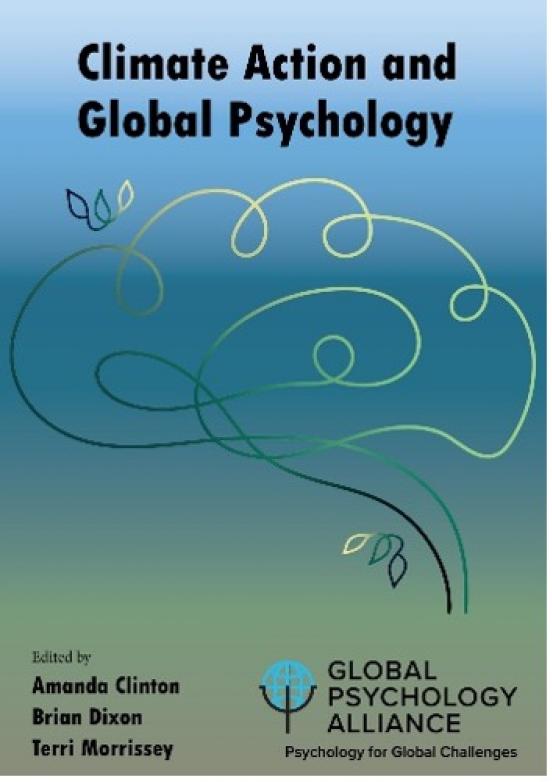
-
The New Zealand Psychological Society, publisher of the Global Psychology Alliance (GPA) Ebook 'Climate Action and Global Psychology', has opened access to the publication ahead of COP27, to allow for greater promotion and awareness of this important contribution to the field of climate psychology.
Closer to COP27, the book’s publishers will be producing advertising material describing the book's contents in more detail. In the interim, this quote from the Editors' Preface provides an outline of the book: Climate Action and Global Psychology offers a unique, multi-national perspective on organised psychology’s nascent collaborative efforts to address the world’s climate crisis.Read more - text fold out
This volume is a combination of theoretical and empirical work, varying according to section and topic. Leadership models related to major global crises like climate tend to be more theoretical, while chapters on projects in specific countries are more empirically oriented. The efforts of global psychology and its constituent professional organisations must address the need to understand the imminent threats posed for Indigenous peoples by climate change and seek ways to ensure psychology empowers and supports the actions of their people.
The European chapter “Climate Efforts across Europe: Contrasts and Commonalities” was lead authored by Nicola Gale of EFPA, and contains vignettes from Genevieve Ileris former Interim Head of Policy and Public Affairs British Psychological Society; Valeriia Palii, President of The National Psychological Association of Ukraine; and Sofia Ramalho, Vice-President of the Portuguese Psychologists Association and Tiago Pereira, Board Member of the Portuguese Psychologists Association. The chapter sets out the European context and political landscape in Europe related to climate change, the position in the COP26 host country the United Kingdom, and then the steps European psychology is taking to organise to contribute to tackling climate change. The vignettes illustrate some of the steps, with an account of how to develop a policy campaign to raise awareness, resources and training for psychologists as agents of change, and a national level strategic action plan. The book can now be downloaded free of charge from the New Zealand Society's website here
The PDF version that members of the profession and public can download as they wish is available on the “Recomended Publications” section of this edition. If people want the published E-book version, they can contact the Nw Zealand Society's professional development officer whose email address is on the webpage and a copy will be sent to them.
APA Convention
European psychologists at the 2022 APA Convention in Minneapolis
Much of the focus of APA 2022 was the big issues facing society, including climate change.One of the Main Stage Headline Events was entitled Psychology Can Change Climate Change. This event, chaired by experienced journalist Lolly Bowean of the Ford Foundation, presented thought a series of talks and discussion, how changing human behavior is at the heart of every climate change solution, and psychological science is uniquely qualified to lead the way in identifying ways to make those changes. Speakers discussed how the field has an opportunity to help those who are most vulnerable, to explain how changing human behavior can improve lives, and to show how science can save the world.
This was reported on by journalists for Time Magazine that can be read in full in our section ‘for a longer read’ here below.The format of the main stage events was a welcome innovation. It combined presentation of the contribution from psychology with that of other disciplines tied together by a journalistic exploration in broadcast interview format. In other words, it had the elements of a symposium but in a more engaging and relevant format which might be supposed to have facilitated the exposure of the work and messages in the national media.
_w732_h326_1.jpg)
Returning to the more traditional programme, European psychologists were part of a team that presented on psychologists’ experiences at COP26 in Glasgow in the United Kingdom in November 2021, “Global Collaboration on Psychology and Climate Change - Reflections on Attendance at COP26 “.
The delegation of members of the Global Psychology Alliance was able to attend COP26 due to APA’s accreditation with the UNFCCC allowing them to send up to six observers to the COPs, this is a great advantage allowing access to the inner circle of country party negotiators not just the wider fringe.
The presentations were made by Amanda Clinton from APA who talked about the road to COP26, how it came about and worked in practice, and why global psychology needs a voice; Nicola Gale from EFPA who spoke about the experience at the event itself and learning for greater impact next time; Sofia Ramalho from OPP Portugal who put the experience in the national context including influencing the national government; and Terri Morrissey from consultancy This is in Ireland (including the work of absent colleague Richard Plenty) who spoke on the follow up to COP26, asking is commitment still there, is there a roll back on pledges, where next?Overall European psychologists valued once more the opportunity to get together face to face with our US colleagues and share experiences and ideas.
Back to top
Commission secures ambitious EU negotiating mandate for the COP27 on Climate and COP15 on Biodiversity
October 25, 2022
At the Environment Council in Luxembourg, the Commission secured an ambitious negotiating mandate for the upcoming COP27 Climate Conference in November and the COP15 Biodiversity Conference in December. The EU will push for increased action at global level to tackle the interconnected climate and biodiversity crises, and will work with like-minded partners to secure a successful outcome at both international conferences.
Read more 30 years of EU funding projects to combat climate change
The European Union has been funding projects that are helping combat climate change in their own way for 30 years. Overall, since 1992, the LIFE programme has co-financed over 5,500 projects. Total funding now stands at €5.4 billion for 2021 - 2027, to support projects across the Union, as well as in Europe’s eastern and southern neighbourhood. Three stories of how climate science is working to support communities (taken from the September newsletter EU Climate Action) can be read here
EU Mission on Adaptation to Climate Change grows
At the end of September, the European Commission announced that 100 more regions and local authorities are joining the Charter of the EU Mission for Adaptation to Climate Change. The Mission aims to support EU regions, cities and local authorities in their efforts to build resilience against the impacts of climate change, understating their risks, preparedness, and testing and deploying innovative solutions.
These regions and local authorities declared their willingness to cooperate, mobilise resources and develop activities to reach their adaptation goals. A further 23 private companies, service centres, research networks and local action groups dedicated to improving climate resilience will endorse the Charter and become Friends of the Mission. The total number of signatories to the Mission Charter now stands at 215 from 24 Member States, with 13 more parties coming from countries associated or potentially associated with Horizon Europe. All signatories will become part of a community of practice on adaptation to climate change allowing them to network, connect and share experiences, and will be invited to a coordination event at the end of the year.Back to top
COP27
Paving the way to COP27:
the Bonn Climate Change ConferenceIn our last edition we reported that the German psychologists’ community was present at this event, which was attended by Berufsverband deutscher Psychologinnen und Psychologen e.V. (BDP). President Dr. Meltem Avci-Werning as an observer for the UN accredited American Psychological Association (APA), on behalf of the Global Psychology Alliance (GPA).
The EU has now provided their perspective on this event, especially in relation to EU actions and commitments. In its closing statement, the EU welcomed the progress made, and called on Parties to continue to build convergence on the various issues before meeting again in person in Sharm el-Sheikh for the UN Climate Conference (COP27) in November. The full commentary can be read here Programme of events
COP27 is now in full swing. The programme of events, much of which can be followed remotely, can be seen here
COP27 EU Side Events
EU action on climate change: be part of the conversation!
As the world gears up for COP27 in Egypt, the EU will once again be hosting a series of EU Side Events from 7 to 18 November.Over 120 events with 600 speakers, covering key themes such as climate change adaptation, climate finance, clean energy transition, low-carbon technologies for industry, sustainable land use, and more. Register online to explore the programme and add the events you want to follow in your agenda. All sessions will be webstreamed via the event platform
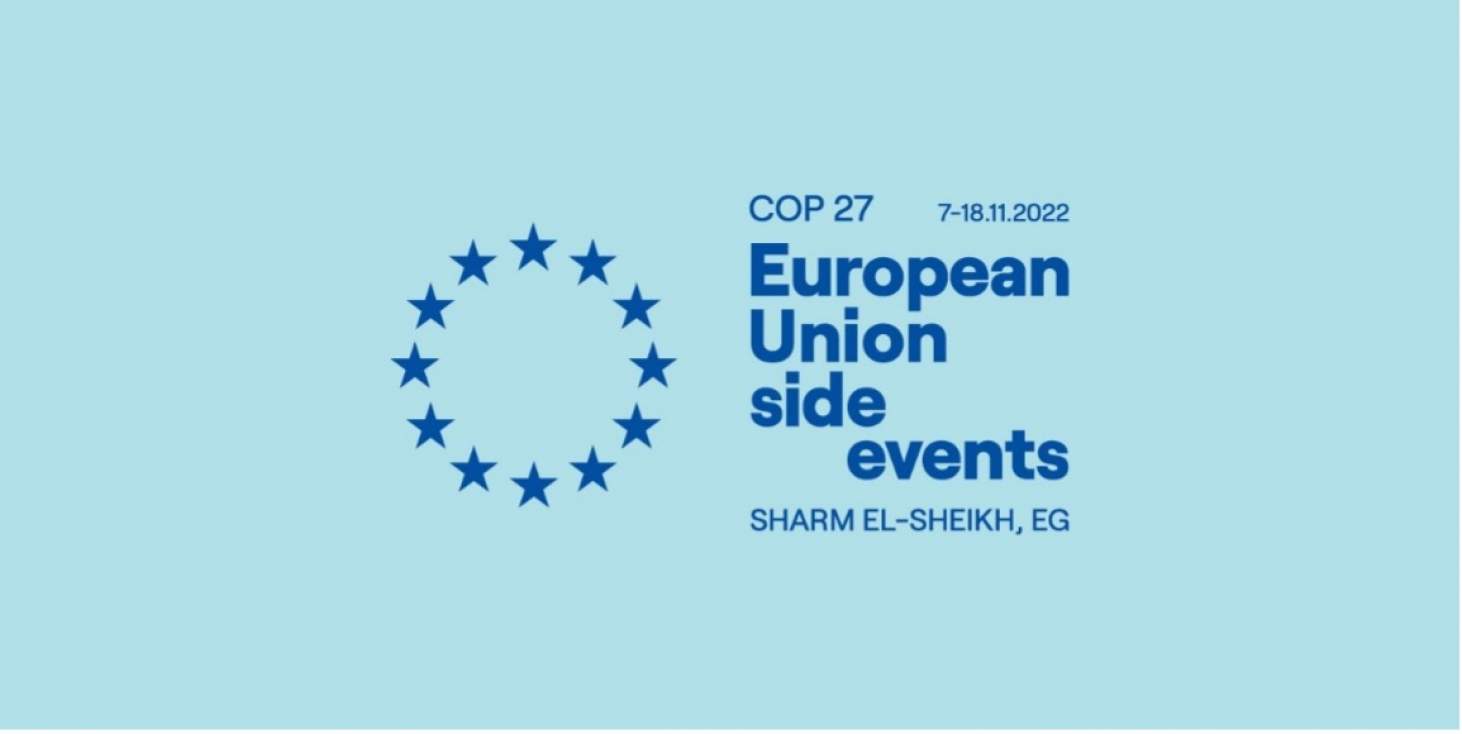
Back to top
APA Convention:
How Psychology Can Help Fight Climate Change
And Climate AnxietyEuropean Psychologists’ presence at the APA Convention 2022 was covered above in our report on activity with our partners. Here’s the Time Magazine article which looks at how psychology can be utilized in the climate crisis.
Read the article of Time Magazine here (1)_w1700_h406_1.png)
-
_w516_h172_1.png)
